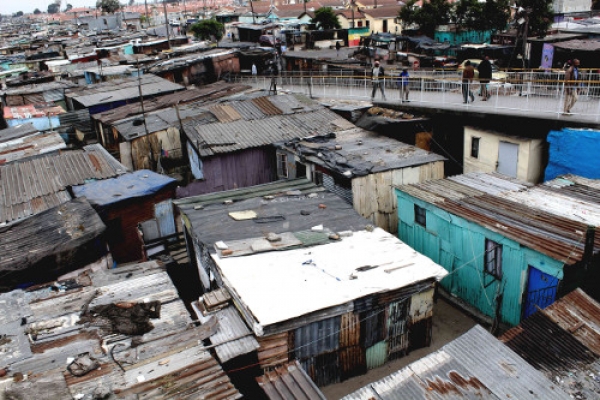Time for an economic alternative

The old ideas about economics are not working and we are in an unstable period, where alternative ideas should be considered, tested and grown, writes Sofie Geerts.
The economic thinking which has prevailed since World War II, is no longer offering us a stable economy and society.
Neither Keynesian economics nor neoliberalism, two opposite economic paradigms, have succeeded in creating an economy that benefits all of us.
Keynesian economics, popular after World War II, advocated state intervention in the economy, on the grounds that leaving the economy to the market could cause economic inefficiency, and even economic crisis.
Neoliberalism, on the other hand, which became popular from the early 1980s, advocated the reduction of the role of the state in the economy, saying that the economy should be left to the markets. This led to a dismantling of the welfare state and increased economic inequality. The neoliberal ideas became known as the Washington Consensus and spread on a global scale driven by countries like the United States, the United Kingdom and international financial institutions.
The financial crisis that started in 2007 changed all this and Keynesian ideas came to the forefront again. Gerard Lyons, formerly Chief Economist at Standard Chartered Bank, now speaks of a “Beijing consensus’, replacing the “Washington consensus”, a reference to the the Chinese economy which is tightly controlled by the government.
In South Africa, though a strong state is in place, strong institutions manned by skilled and passionate officials are lacking. This is causing huge disillusionment among citizens as poverty persists and inequality grows.
It is clear that we are now in an unstable economic period, where alternative ideas should be considered, tested and grown where they are seen to work. Dr Norman Reynolds, a development economist, created an alternative economic model in the early 2000s, the ‘Community Investment Programme’.
He believed in the capacity of ordinary people to know what is good for them, without having others, including the government, prescribing what is good for them. People should run their own lives, helped by government institutions who truly ‘assist’ the people.
In Dr Reynolds´ model, organised communities would have direct access to state funds. Communities would decide how the funds are spent, within a policy framework. A few officials would be necessary to facilitate the process, but they would not have decision-making power.
Central to his idea is the creation of a working local economy, where production and trade take place. He argued that increased local money circulation and hence the creation of local wealth was the only viable route for true community development. Community investment should be a learning process, where the community can learn, make mistakes, and try again.
In the private sector, Dr Reynolds promoted employee-ownership, where employees of companies would have decision-making power and a share of the company.
Experiments with both models, Community Investment and employee-ownership are visible in South Africa. The IT-company AXIZ implemented an employee-ownership model and on KwaZulu-Natal’s south coast, the Siyavuna Development Centre is helping rural villages build sustainable communities and a local economy.
Each interested community member can start farming voluntarily, on any scale, and sell his or her produce on a weekly basis to a community-owned cooperative. About 80% of the farmers are older women.
Each week, on the same place and on the same day, a farmer can sell fruit and vegetables at a known price and be paid in cash immediately, on the spot. So there is a guaranteed market and guaranteed extra income on a weekly basis. This is very powerful, as insufficient access to the market is often the problem of small- scale rural farmers. The extra income might be little, between R10 and R150 per week, but even R10 can make a real difference. One female farmer testified that she could now buy airtime on a weekly basis, which she could never do before.
The community-owned cooperative, which trades under the name ‘Kumnandi’, markets the fruit and vegetables to local shops, schools, old age homes and supermarkets.
The programme started in one rural community with 20 farmers and is now present in more than 10 communities in two districts with more than 400 farmers. Besides fruit and vegetables, farmers also make products like jams and marmalades and sell these to the cooperative.
Siyavuna Development Centre helps the communities to set up and organise the system.
More information, including testimonies of farmers involved in the programme, can be found on the website of Siyavuna Development Centre: www.siyavuna.org.za.
Dr Reynolds’ alternative programmes could rival Keynesian economics and neoliberalism. There is a need for a new model that truly empowers ALL people, realising economic freedom for them.
The National Development Plan, which is not implemented yet, mentions that the way development has been done since 1994 has been inadequate. The Plan proposes a new approach to ‘development’, one that moves away from a passive citizenry receiving services from the state to one where people are active champions of their own development, and where government works effectively to develop the capabilities of people to lead the lives they desire.
The Community Investment Programme could be the way to bring economic development to all South Africans. The South African government should seriously consider using the this alternative development model to achieve its objectives.
Dr Geerts studied the work of Dr Reynolds as part of her Doctoral Thesis at the Department of Development Studies of UNISA. She formerly worked for the Ethics Institute of South Africa and currently works for Forum Ethibel,which aims to stimulate socially responsible investing and corporate social responsibility.
The opinions expressed in this article are solely those of the author. No inference should be made on whether these reflect the editorial position of GroundUp.
Next: Problems and prejudice face Nigerians in Cape Town
Previous: No sign of Zuma’s sanitary towels

This article is licensed under a Creative Commons Attribution-NoDerivatives 4.0 International License.


